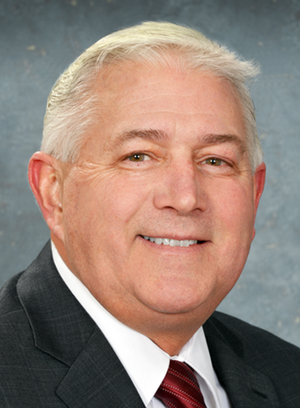Can brownfield development happen without government’s help?
The 2010 U.S. Census gave us the bad news: In only a single decade, a half-million people packed up and left the state of Michigan for jobs in other states. After a lot of hard work, Michigan’s economy is recovering, jobs are being created, and personal incomes are on the rise. We’ve invited people to come home – and they’re coming.
I chair the Senate Economic Development and International Investment Committee and my colleagues and I have continuously voted to improve Michigan’s economy and get people back to work. The committee recently unanimously approved a package of bills that would create the tools we need to both revitalize cities across the state and to take Michigan’s economy to the next level.
I am honored to represent Saginaw, a city with a rich heritage and proud past. It is also one of many across our great state that suffered from declining populations and disinvestment. I’ve often said that Saginaw is to the Saginaw Bay region as Detroit is to Michigan; our fortunes and futures are intertwined.
As we’re discovering, the strength of our state is tied to the strength of our urban centers. As private investment leaves a community, government investment fills the gap, one way or the other. So, if we do nothing about our crumbling cities today, we’ll have nothing but crumbled cities tomorrow. We can, and must, do better.
The state needs to find private developers looking to make truly transformational investments, private development so significant that it can fundamentally transform the attitude of a community.
For more than 30 years we’ve struggled to find a way to develop the Saginaw River with livable spaces and downtown riverfront activities. This legislation gives Michigan a fighting chance to deal with hulking abandoned buildings and empty brownfields in communities just like Saginaw.
As we crafted this economic development tool, we applied the “but for” test. This is designed for projects that would not happen “but for” the tax increment financing (TIF) that only the state can apply. An empty property, which earns nothing today, could gain up to 75 percent more in tax revenue. Once the funding gap is satisfied through the tax capture, it goes away.
We have gone out of our way to protect state taxpayers, while giving private developers the incentives they need to help put our cities back on the path to prosperity. The legislation requires a demonstrated “net gain” for the state and because the state puts no money up front, it protects the School Aid Fund, local revenue sharing, road and bridge funding and everything else that you and I think are very important. The protections are built into the legislation.
The multimillion dollar risks are all on the private sector, the way it should be. If a development fails, only the developer loses. This is not a handout for developers, but a tool for cities and large towns all across Michigan.
Only five “transformational” projects would be allowed statewide, meaning only the best developments with the best shot of success and the best return on investment will be selected. Only one per community, per year, as well.
There are a lot of people in the media saying that this package is only about helping Detroit. Passage of these bills will bring billions of dollars of investment to cities like mine, all over our state. That’s why the legislation has support from groups and lawmakers from every corner of Michigan.
This legislation is pro-Michigan, pro-community and pro-growth at precisely the time young professionals, engineers and skilled tradespeople are looking to move back into Michigan. Michigan has a bright future, Senate Bills 1061-65 aim to make sure of that.
See what new members are saying about why they donated to Bridge Michigan:
- “In order for this information to be accurate and unbiased it must be underwritten by its readers, not by special interests.” - Larry S.
- “Not many other media sources report on the topics Bridge does.” - Susan B.
- “Your journalism is outstanding and rare these days.” - Mark S.
If you want to ensure the future of nonpartisan, nonprofit Michigan journalism, please become a member today. You, too, will be asked why you donated and maybe we'll feature your quote next time!


 Sen. Ken Horn, R-Frankenmuth, represents the 32nd district, comprised of Saginaw and part of Genesee counties.
Sen. Ken Horn, R-Frankenmuth, represents the 32nd district, comprised of Saginaw and part of Genesee counties.